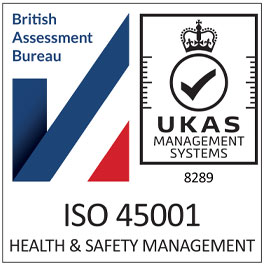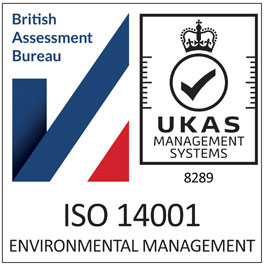
Prioritising the people that matter
Uncertainty is a natural part of business, especially in a world which seems to be increasingly difficult to predict. Anyone running a commercial enterprise able to foresee what’s coming round the corner would likely be walking around a great deal richer and certainly more at ease with life. Back in reality, however, we all understand that the peaks don’t exist without the troughs and the good times are meaningless without more challenging periods that keep us on our toes – and our feet on the ground.
The thing is, we’re creatures of habit and not all that welcoming to change, especially if it makes things less stable and reassuring both at home and at work; our natural instinct isn’t exactly to embrace bumps in the road with open arms and celebrate the unknown. Ultimately, it takes a brave leader to look a daunting Q2 in the eyes and visualise a host of new exciting opportunities rather than letting a grimace flash across their face and breathing in sharply.
A typical reaction would probably be something closer to hunkering down, gritting your teeth and hoping the storm blows over sooner rather than later. It would be fair to assume that most of us feel a certain sense of paralysis when circumstances affecting our commercial operations are beyond our control and the idea of getting a mere foothold on the situation feels like a mountain to climb.
The thing is, what if restrictions on your productivity could be harnessed to make wider organisational improvements? Is it possible to view slow trading conditions as an opportunity to implement longer term improvements? Could economic uncertainty actually be turned on its head, meaning you emerge through the other side a stronger business?
If we look closely enough, something like the challenge of limited site access, the worry of unsettled staff or the concern over financial projections might actually offer a pathway to pole position once happier days finally arrive.
But how do we get there?
In this first of two articles, we will look at the most important elements of any operation: the people who make it what it is, both inside and outside of the business.

Strengthen your supply chain
Chances are, if commercial restrictions lead to either a downturn in demand or a reduced ability to deliver your usual service, the likelihood is your suppliers and partners further up the supply chain will be struggling in a similar way.
When a brief period of enforced limitation turns into something longer term then, despite your slower production levels, there will come a point at which your apparently limitless volumes of parts, stock or other inventory start to dwindle – leaving you helpless to replenish any of them at short notice. This will inevitably have a negative effect on your own order fulfilment, turning a tricky situation into a downright precarious one with potential to damage not only your sales but quite possibly your reputation as a brand.
Action to take on this front is two-fold:
- Firstly, increase your inventory of the most commonly used parts or stock used in the highest proportion of your orders. While simply stockpiling ‘more of everything’ to cover every possible eventuality may be tempting, it’s an approach that carries both logistical and financial impracticalities.
That being said, having access to more of that which allows you to maintain a significant proportion of your service delivery will help you tide over even the most protracted of economic pauses. In trying times, a deeper pool of priority stock could get you out of a sticky situation or two, helping you and your customers.
- Secondly, actively widen your supply chain. You’ll have undoubtedly settled on your current roster of suppliers based on price, reliability, trust and the like, shunning other providers that fall short of your criteria. However, in the interests of building in extra operational resilience and protecting your ability to service customers, you could do worse than build up a second tier of suppliers that, while not necessarily the cheapest, quickest to deliver or most well-stocked, may make a vital difference when economic activity slows to a crawl.
When the chips are down, you’ll be thankful for having your secondary suppliers to call upon, regardless of having to pay a slight premium or waiting a little longer for delivery. Another more general upside is that you’re simply active across a wider business network, allowing your staff to develop deeper relationships with more commercial contacts and your brand to gain more exposure overall. You never know who might be in touch at some point down the line…

Get closer to your staff
Slow or restricted operational activity may mean that staff are working at much lower capacity, shifted to reduced hours contracts or even placed on a job retention scheme. Although it seems counterproductive at this point to gauge opinion from across your workforce, it could in fact be the ideal moment while the frantic to-and-fro of the typical working week is turned down to a gentle simmer.
For those who have been able to take a step back from their daily duties to a large extent, perspectives are likely to be sharper and viewpoints more objective. This will lead to balanced, authentic insights that are more suitable for basing the potential evolution of your company on, rather than asking for constructive opinions in the heat of the moment when everyone is working at full steam ahead.
Key to making this exercise as mutually beneficial as possible is the overall tone and message. Are you just looking to identify the biggest gripes amongst staff? Do you want to be able to better champion the most valued people and projects? Do you need to prioritise addressing the more lacklustre areas of the business? Whatever your goals are, you’ll need to structure your questions around the type of insight you want to generate.
Central topics can include areas such as job satisfaction, career development, colleague relationships, experience of being managed and future aspirations. Similarly, there are a range of formats to consider, all with their own advantages: 1-on-1 interviews, peer-to-peer conversation, group sessions or individual survey all offer unique ways of framing your gathering of information.
Needless to say, there is no shortage of approaches to gathering precious employee feedback and periods of reduced staff activity can offer you just the opportunity you’ve been waiting for to follow through properly. If you’re struggling to carve out enough time to do justice to a feedback exercise such as this and would normally run the risk of catching your people overwhelmed, off-guard and less-than-forthcoming, it’s surely time to put your ear to the ground now more than ever.
When we’re faced with business challenges beyond our control, we may appear to be presented with a two-way choice: sit on our hands for fear of making a mistake or hastily take action in the name of doing something for its own sake. In truth, however, there is a third way: where calm, considered measures, carried out in full, can bring about real progression, growth and lasting change in a business.
The benefits of these changes can not only strengthen commercial activity but also reinvigorate its workforce, which is a virtuous cycle indeed. The sum of these parts won’t suddenly render your company impervious to any and all trading conditions – it would be foolish to strive for such an goal – but an organisation that has better internal and external relationships is an inherently more robust, resilient one, ready to navigate the increasingly choppy seas of present day commerce.
Click here to read Part 2.





